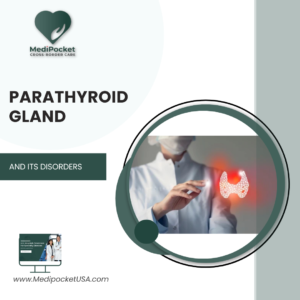India is currently witnessing an increase in new cancer cases, which worries many individuals about the possibility that they or a loved one may get the disease. Although people’s health are not in jeopardy due to India’s healthcare system, it is inevitable that there will be a shortage of resources and a lack of experience in this area.
According to the World Health Organization‘s most recent estimates of the disease’s global burden, breast cancer was the most frequent type of cancer in India in 2022, accounting for over 14.1 lakh new cases and over 9.1 lakh deaths from the disease (WHO).
According to the International Agency for Research on Cancer (IARC), cervical and breast cancer turned out to be the most common cancers in women, making up nearly 27 and 18 percent of new cases, while oral and lung cancer were said to be the most common in men, accounting for 15.6 and 8.5 percent of new cases.
Let’s take a look at the definition of these rising cancers.
The Rising Cancer cases in India in 2024
Breast cancer:

Breast cancer is a kind of cancer that starts in the breast’s cells, generally in the lobules (glands that create milk) or the ducts (tubes that bring milk to the nipple). It is one of the most common cancers that affect women, while it does occasionally affect men as well. If breast cancer is not identified and treated promptly, it may spread to other areas of the body and appear as a lump or tumor in the breast. Breast cancer is frequently painless.
Typical Signs of Breast Cancer:
- Breast lump: The most typical indication is a detectable lump in the breast or underarm.
- Changes in Breast Size or form: Unexpected modifications to the breast’s size or form could be a sign of malignancy.
- Skin Changes: Redness, dimpling, or puckering on the skin may be signs of breast cancer.
- Nipple Changes: Modifications to the nipple’s appearance, such as inversion or discharge, could be a red flag.
- Persistent pain: or soreness may be an indication of breast cancer, even if it is not always uncomfortable.
Oral Cancer:

The lips, tongue, gums, and inner lining of the cheeks are just a few of the mouth’s many organs that can be affected by oral cancer, a dangerous and perhaps fatal illness. It frequently presents as tumors or malignant growths, with squamous cell carcinoma accounting for the bulk of diagnoses. This type of malignancy may seriously affect one’s general health and dental health.
Signs of mouth cancer
- Persistent sores: Any mouth sores or ulcers that do not heal in a reasonable amount of time are considered persistent.
- Red or white patches: Abnormal patches on the tongue or mouth lining might be red or white in color.
- Modifications in Speech: Inability to talk or articulate words clearly.
- Lumps or Swelling: Unidentified lumps or swelling in the neck or mouth.
- Chronic Sore Throat: A persistent sore throat that doesn’t get better with time.
Cervical Cancer

One type of cancer that starts in the cells of the cervix—the lower portion of the uterus that connects to the vagina—is called cervical cancer. The most frequent cause of it is a chronic infection with high-risk strains of the sexually transmitted illness human papillomavirus (HPV). Since cervical cancer frequently advances slowly, early detection and successful treatment are possible. If left untreated, it could, nevertheless, occasionally spread to other bodily areas. Frequent screenings are essential for identifying abnormalities and stopping the development of cervical cancer. Examples of these screenings are Pap smears and HPV tests.
Signs of cervical cancer include:
- Abnormal Vaginal Bleeding: Abnormal bleeding that occurs after menopause, between periods, or after sexual activity.
- Pelvic Pain: Chronic discomfort or pain in the pelvic area that is not associated with the menstrual cycle.
- Pain or Discomfort During Sexual Interaction: Pain or discomfort during sexual engagement, frequently a sign of a more serious problem.
- Unexpected Loss of Weight: Not related to dietary or exercise modifications, but notable and inexplicable loss of weight.
- Fatigue: Extended periods of exhaustion and low energy levels, which could indicate advanced cervical cancer.
Oncologist from USA
These are some of the best oncologists in the United States who focus on cancer therapy. MediPocket makes it easier than ever to receive a virtual consultation or treatment from these specialists.
Dr. Theodore M.Rose – USA

At Cleveland Clinic Canada, Theodore Ross, MD, is a board-certified colorectal surgeon.
Dr. Ross is an expert in digestive disorders as well as colon and rectum issues. For more than 28 years, Dr. Ross has been employed at the University of Toronto’s Department of Surgery. He works as an active staff member at Sunnybrook Health Sciences Center.
Dr. Rachel Dultz – USA
In addition to being a member of the American College of Surgeons with a fellowship in breast surgical oncology (FACS), Dr. Rachel Dultz is a board-certified surgeon.
She may boast of more than 27 years of experience. She has been treating patients in Princeton and the surrounding areas with breast issues since 1998, both men and women.
In January 2009, she happily opened her own private clinic, treating just patients with breast illnesses, at the Breast Health Center in East Windsor.
Dr. Christopher Wolfgang – USA

The director of the recently established Hepatobiliary & Pancreatic Surgery Division at NYU Langone Health is Dr. Christopher Wolfgang. He is regarded as one of the world’s top oncologists for pancreatic cancer. Thus far, he has completed almost 1,200 pancreatic surgeries. The new division will offer top-notch care for diseases and cancers of the pancreas, gallbladder, bile duct, and fatty liver.
Best Cancer treatment from the USA is a privilege to many and we are keen to provide promising care to the patients around the world with MediPocket USA. Contact us for sustainable, affordable and premium care from the United States.







